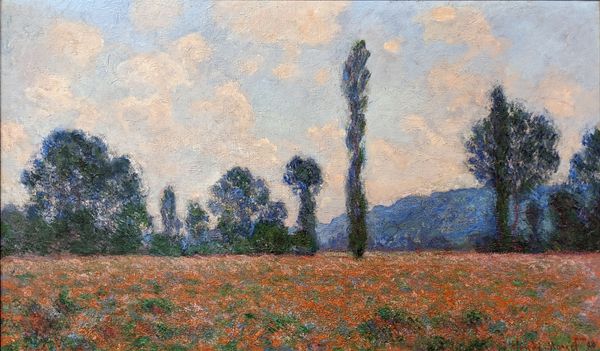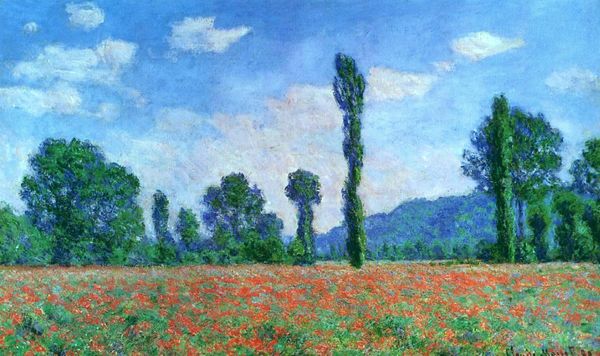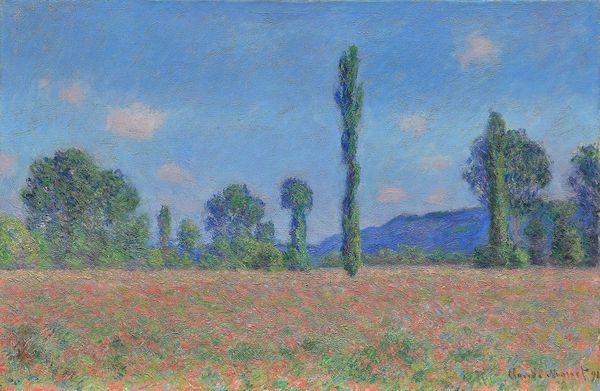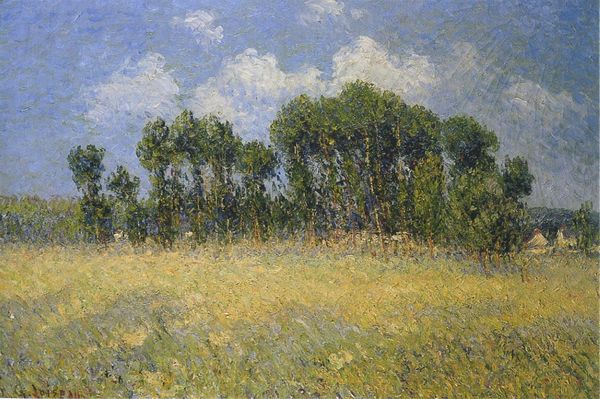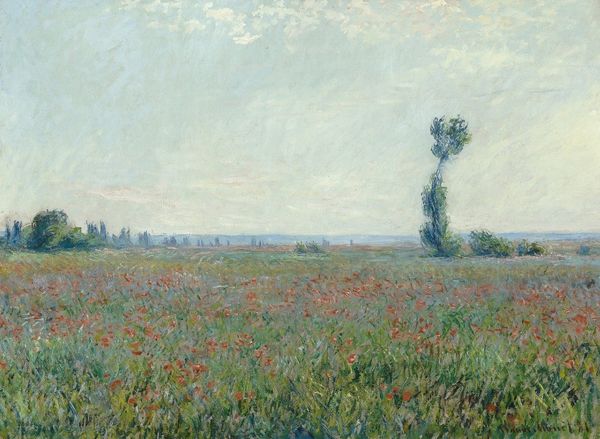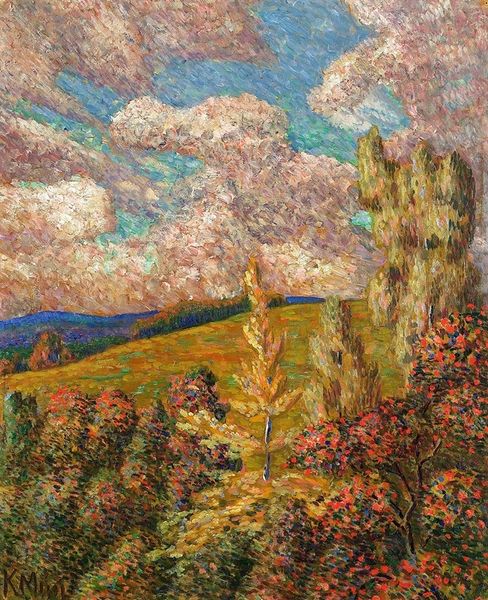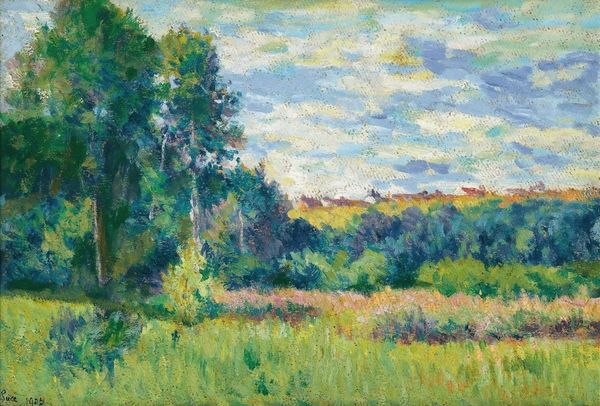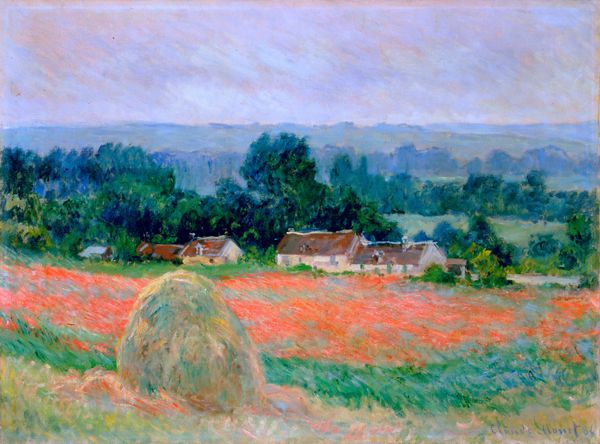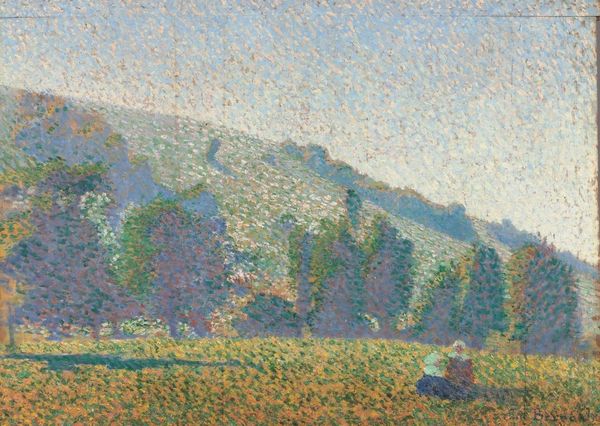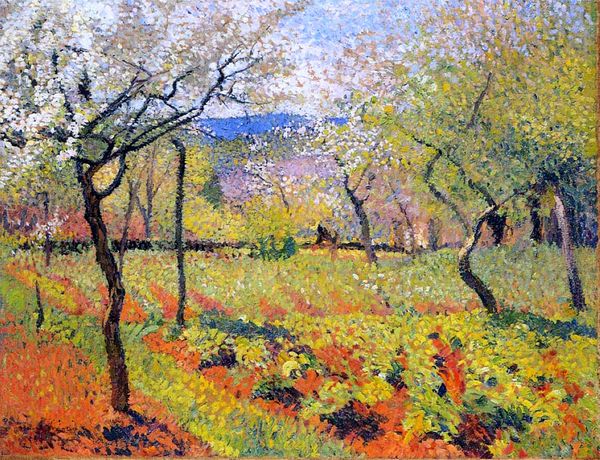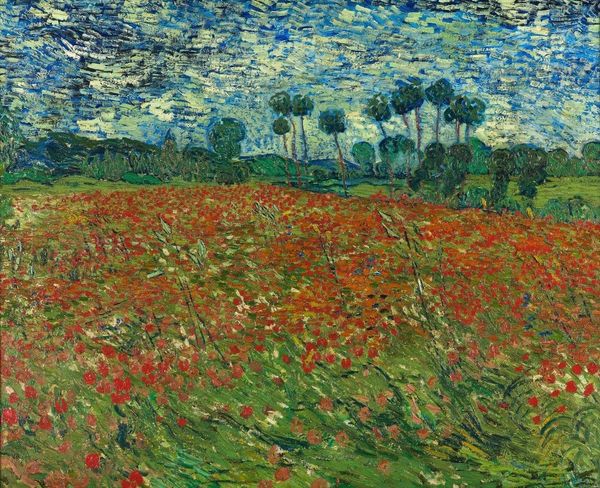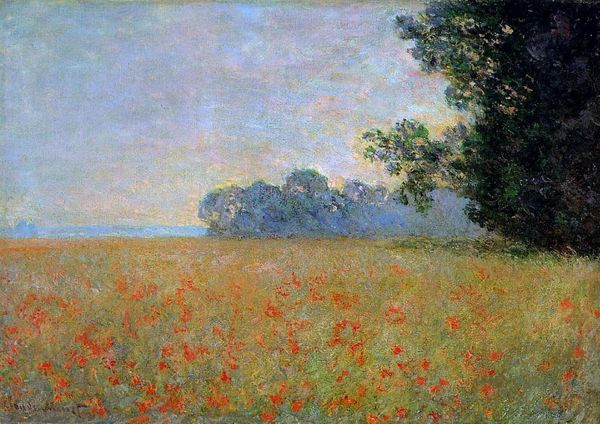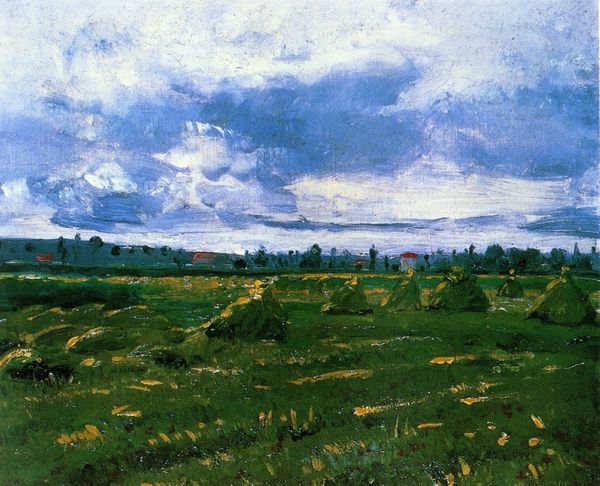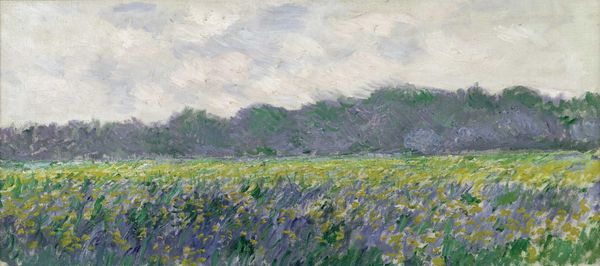
painting, plein-air, oil-paint
#
painting
#
impressionism
#
plein-air
#
oil-paint
#
landscape
#
impressionist landscape
#
nature
Copyright: Public domain
Curator: Here we have Claude Monet's "Poppy Field in Giverny," painted around 1890. He truly captured the transient effects of light in this oil painting. What are your immediate thoughts? Editor: A sense of freedom. The red blooms appear almost like flames rippling across the landscape, full of unrestrained vitality. There's a feeling of joyous release. Curator: Absolutely. This work emerged from a period where Monet retreated to Giverny. He began focusing intently on his surroundings, on capturing a slice of untamed nature. He purchased a house there in 1883, didn't he? Which gave him the ability to completely shape that landscape. It became a constructed paradise for him and then, ultimately, for the world. Editor: Indeed, poppies are heavily symbolic, often associated with remembrance, but also with sleep and oblivion. I think Monet has captured this ambiguity beautifully; these fields appear intensely alive but also dreamy and a bit unreal. The vibrant redness acts almost as a curtain, or a veil, that hints to these themes of remembrance and loss. Curator: That’s a poignant observation. And considering the broader artistic climate, the painting comes at a pivotal moment in the development of Impressionism. Monet was already established, exhibited, and debated; therefore, paintings like this contributed significantly to shifting public and critical perspectives, legitimizing his approach. It also reflects the bourgeois public’s craving for depictions of leisure and nature at a safe distance from modern life in the cities. Editor: It's interesting that you bring up that distance. Because even though we are in this 'safe space,' poppies in many cultures have grown in disturbed soil after conflict and devastation. The choice to celebrate their growth suggests a complicated story being subtly revealed, perhaps as an ode to hope that finds root amid challenging periods of societal change. Curator: It highlights how artistic value evolves within a specific set of socioeconomic expectations and cultural tensions, right? We see this arc as the avant-garde redefines what art should be and where it belongs. Editor: Right, and what meanings it subtly and bravely evokes. Looking at the painting again, the persistent dialogue between vibrant beauty and shadowed implications provides a powerful lasting impact. Curator: I agree entirely; viewing Monet's piece under this fresh lens provides much to ponder concerning artistic representation during a time of shifting sensibilities.
Comments
No comments
Be the first to comment and join the conversation on the ultimate creative platform.
